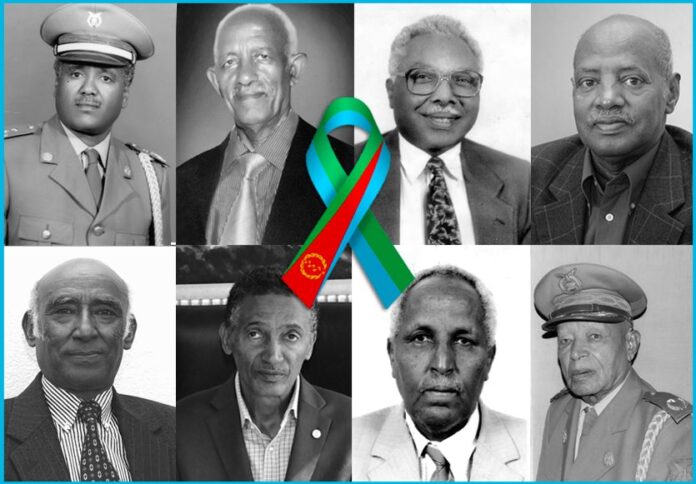Eritrea, a nation forged in the fires of a 30-year liberation struggle, stands at a pivotal juncture. Its independence, hard-won against overwhelming odds, is now etched in the hearts of the next generation who continue to make sacrifices to preserve that spirit. Yet, time, the relentless tide, carries with it whispers of a new chapter. The generation of heroes who liberated the country from Ethiopian rule and forged its independent identity is aging and passing. As their twilight approaches, a crucial question hangs heavy in the air: how can Eritrea ensure a smooth and peaceful transition to a new era of leadership, one that honors the legacy of the past while embracing the possibilities of the future?
A Legacy Engraved in Stone
Eritrea’s story is one of resilience and unwavering determination. For decades, Eritrean freedom fighters battled Ethiopian occupation, culminating in a hard-fought victory in 1991. The liberation generation, led by heroic figures, built a strong sense of national identity, laying the groundwork for the future to the best of their ability. The scars of that struggle are now etched into the nation’s very fabric, their exemplary legacy assured in the annals of history.
Yet, beneath the surface of this remarkable achievement, Eritrea’s governance, shrouded in a cloak of secrecy, lacks a clear and legal path for succession, leaving the future of the nation uncertain and potentially vulnerable to instability.
Challenges Whispering in the Wind
The political system, while still embodying the spirit that binds the Eritrean people together, continues to face criticism for its rigidity and lack of space for dissent. The institutional framework, appears to lack the flexibility to adapt to the changing tides of a digitized and globalized world. Economic growth has stalled, and the lack of institutional development and democratic space stifles the entrepreneurial spirit and yearning for greater participation, leaving many young Eritreans yearning for opportunities beyond the borders of their beloved nation.
The aging leadership, while respected for their sacrifices and historic achievements, raises concerns about continuity and stability. The specter of an unprepared transition, one that fails to address the aspirations of the youth and the need for political reform, looms large, threatening to plunge the nation into uncertainty.
Succession: A Necessity, Not a Taboo
Procrastinating on this crucial issue is no longer an option. To ensure a smooth and peaceful transition, Eritrea must confront the inevitable and proactively plan for a future beyond its founding fathers and mothers. This is not a betrayal of the liberation generation’s legacy; it is an act of honoring their sacrifices by ensuring the nation they help build continues to thrive. A well-defined plan can avoid potentially destabilizing power vacuums, providing a platform for the younger generation to contribute their fresh perspectives and innovative ideas.
Such a plan would not only foster stability and confidence within the nation, but also attract investment and development partners, crucial for Eritrea’s economic revival. It would be a testament to the enduring spirit of the Eritrean people, demonstrating their ability to adapt and evolve while remaining true to their core values.
Yes, Eritrea is a resilient country and it’s resiliency is about to be tested once again.
Honoring the Past, Embracing the Future
Honoring the legacy of the liberation generation is not just about erecting monuments or plastering pictures of heroes all over social media. Preserving their legacy is not about clinging to the past, but about learning from it and drawing inspiration for the future. Their sacrifices must serve as a beacon, guiding the nation towards a future where political participation and accountability flourish.
But to truly honor their legacy, Eritrea must move forward. This requires open and inclusive dialogue about the nation’s future, a dialogue that embraces diverse perspectives and fosters a culture of political participation and accountability. It necessitates, equipping the next generation with the skills and political space to lead Eritrea into a new era of prosperity and progress.
A Call to Action: Embracing a Brighter Dawn
This is a moment that demands all of us to open our eyes with optimism, not burying our head in the sand. The onus lies not only on the current leadership to show courage and initiate discussions on succession, but also on civil society and the Eritrean people at large. Active engagement, constructive criticism, and a willingness to participate in shaping the nation’s future are essential. A successful transition will not happen organically; it requires proactive steps, a willingness to embrace change, and a shared vision for a brighter tomorrow.
The choices made today will resonate for generations to come. Will the nation cling to the past, its heroes cast in bronze while the present and the future are uncertain? Or will it embrace the future, honoring its legacy while paving the way for a new era of prosperity, freedom, and hope? The answer lies not in nostalgia of the heroic deeds of the Ghedli generation, but in the courage to chart a new course, a course that preserves the embers of the past while igniting the flames of a brighter future.
Eritrea’s story is far from over. The chapters yet to be written hold the potential for a nation that thrives not just on the sacrifices of the past, but on the collective wisdom and aspirations of its present and future generations. Let this be a turning point, a moment where Eritrea chooses unity over division, progress over stagnation, and a future where the legacy of its heroes continues to inspire, not constrain.
Remember, the journey towards a brighter future begins with a single step. Let every Eritrean take that step, boldly and together.
As we remember those who have passed, may their legacy of courage and sacrifice continue to comfort their loved ones and fortify the fabric of our nation.


Thank you for your wise ideas.